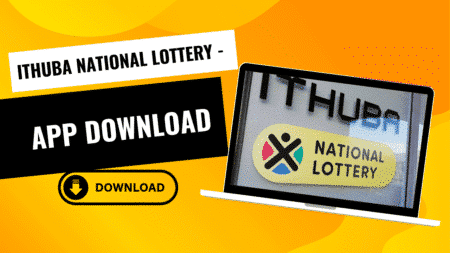

In the bustling townships of South Africa, one gambling game has captivated players for over a century with its unique blend of numerology, dream interpretation, and cultural tradition. Known as Mochina (pronounced mo-chee-nah) or Fafi, this fascinating numbers game represents far more than simple gambling—it’s a cultural phenomenon that bridges Chinese heritage and South African township life.
Origins and Cultural Background
Mochina, also known as Fafi or Fa-Fi, is believed to have originated with South Africa’s Chinese community and has deep historical roots. The name comes from Cantonese Chinese faa wui (花會, Mandarin hua hui), also called Chi-Fah (Mandarin zi hua), and was a popular gambling game in China in the 19th and 20th centuries.
What makes this game particularly interesting is how it evolved in South African townships. Despite its informal and unregulated nature, fafi has persisted across generations as a subtle form of resistance, hope, and agency within economically marginalized communities. The game serves not just as entertainment, but as a form of social connection and cultural expression.
How Mochina Works
The mechanics of Mochina are straightforward yet deeply symbolic. Fafi or Mo-china is a form of mobile lottery where punters bet on which number will be drawn by selecting a number between 1 and 36. However, the number selection process is what sets this game apart from conventional lotteries.
The Dream Connection
Fafi participants choose the number they want to gamble on by interpreting their dreams. This isn’t random selection—each number from 1 to 36 corresponds to specific symbols, objects, or scenarios that might appear in dreams. For example:
- Number 1: King, human blood, white man, left eye
- Number 2: Monkey, native, a spirit, chief, copper, money, jockey
- Number 3: Sea water, accident, frog, sailor, sex
- Number 4: Dead man, turkey, small fortune, bed
- Number 5: Tiger, fight, strong man
Amongst the black culture, and probably many other cultures around the world, dreams carry meaning and significance in the real world. Players take their dreams seriously, viewing them as potential communication from the spiritual realm that can guide their number selection.
The Betting Process
The operational structure of Mochina involves several key players:
The Runner: Corner/spaza shop owners play the role of a bookie, also known as the runner, they usually take bets three times a day, morning, afternoon, and in the evening. These local businesspeople act as intermediaries, collecting bets from community members.
Mo-china (The Operator): Once all bets have been taken by the runner, the draw is done inside a luxury car with tinted windows that can be spotted cruising around the townships, the driver of the car is known as Mo-china. In Limpopo province 95% of fahfi operators are Chinese nationals with only 5% of South Africans.
The Odds: Although township people bet small amounts, the potential for winning is great as each number is paid at odds of 28/1 (though some sources mention 33/1 odds).
Legal Status and Challenges
Mochina operates in a legal gray area. Fahfi can’t be regulated, controlled and therefore it can’t be licensed. This makes it an illegal form of gambling under South African law, yet enforcement remains challenging due to its mobile nature and deep community integration.
Despite facing the risk of been arrested and prosecuted, illegal gambling operators and gamblers continue in offering and playing the game. The persistence of Mochina reflects both its cultural importance and the limited economic opportunities available in many township communities.
Modern Developments
While traditional Mochina remains popular, the digital age has brought changes. Some licensed operators now offer legal versions of the game. Supabets is currently the only bookmaker who offers a dedicated Mo-china Fafi lotto draw. The draws are scheduled to play 6 times a day.
These legitimate platforms maintain the essential dream-interpretation element while providing regulated, safe gambling environments for players who want to enjoy the cultural aspects of the game without legal risks.
Cultural Significance
Mochina represents more than gambling—it’s a form of cultural preservation and community bonding. The symbolic number system is often passed down orally, reinforcing social ties and shared local mythology. The game creates networks of trust and mutual dependence between operators, runners, and players.
For many participants, Mochina offers hope for financial improvement in economically constrained environments. Players viewing it as offering a realistic chance of acquiring lump sums of money to facilitate purchases that are ordinarily out of reach.
The Bottom Line
Mochina gambling represents a unique fusion of Chinese tradition and South African township culture. Built around dream interpretation and community networks, this numbers game has survived for over a century despite legal challenges. While its illegal status raises concerns, its cultural significance and role in providing hope and community connection cannot be ignored.
Whether viewed as a problematic form of unregulated gambling or as an important cultural practice, Mochina remains an integral part of life in many South African communities. For those interested in understanding South African township culture or the intersection of gambling and tradition, Mochina offers a fascinating case study in how games can become deeply embedded in the social fabric of communities.
Remember: All forms of gambling carry risks. If considering participation in any gambling activity, always gamble responsibly and within legal frameworks.












